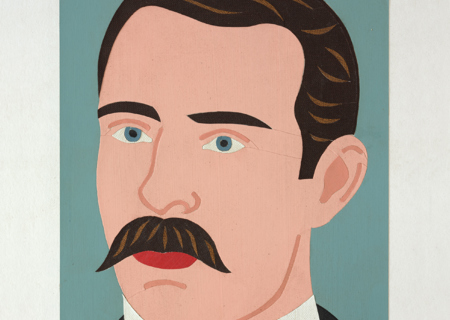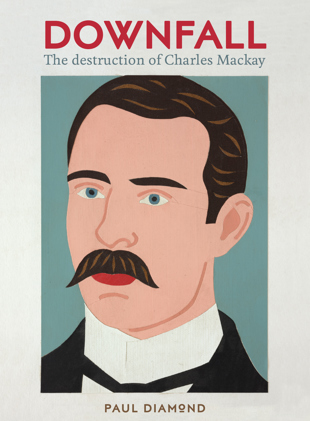The Whanganui Chronicle recently interviewed author Paul Diamond about his book Downfall: The destruction of Charles Mackay, which is shortlisted in this year’s Ockham New Zealand Book Awards for the general non-fiction prize.
Finn Williams writes:
A book about a previously hidden part of Whanganui history is in the running for an award at the Ockham New Zealand Book Awards.
The book, Downfall: The Destruction of Charles Mackay is one of the four finalists for the general non-fiction award after being selected from a long list of 14.
Author Paul Diamond said he was surprised to have made the shortlist.
‘I was thrilled to be on the longlist actually, but I didn’t expect to be on the shortlist but I’m pleased . . . and pleased for the book really,’ he said.
Previously he had been a judge for the awards, so he had experience from the other side.
The book tells the story of Charles Mackay, who was the mayor of Whanganui in 1920 when he was arrested for shooting poet D’Arcy Cresswell.
Cresswell had blackmailed Mackay in an attempt to get him to resign from the mayoralty, threatening he would out him as a gay man if he didn’t.
After Mackay was charged with attempted murder, being outed in the process, he was erased from Whanganui’s history for at least the next half-century.
He died in Berlin during the May Day Riots in 1929.
Diamond was glad to have spread the Mackay and Cresswell story to more people and thought the book had captured people’s imagination due to their understanding of it leaving so many questions unanswered.
‘Why did Cresswell blackmail Mackay? How did he know Mackay was gay? Was there some sort of conspiracy with the RSA or Mackay’s enemies?’
He doubted he’d have the final word on what happened but thought the saga’s previously unspeakable nature made it something of a local myth.
He was nervous about the reaction the book would get in Whanganui when it was first released in November but the local reception had been positive.
‘Which was really awesome, because as I’ve found from the reaction, it’s not just a book about gay history, it’s a book about Whanganui history as well,’ he said.
Diamond has spent quite a lot of time in Whanganui during the long research process for the book and he had become really fond of the city during this time.
The winner of the General Non-Fiction award will receive a $12,000 prize and will be announced at a ceremony in Auckland on 17 May.


